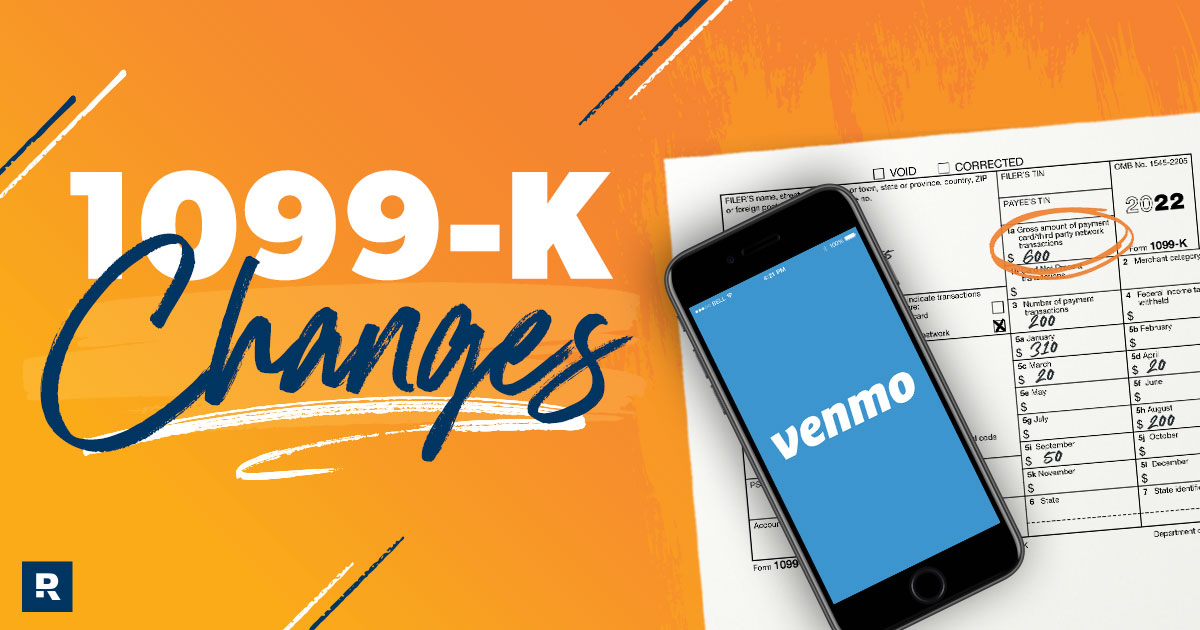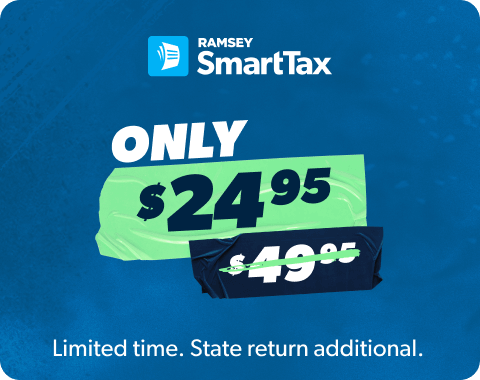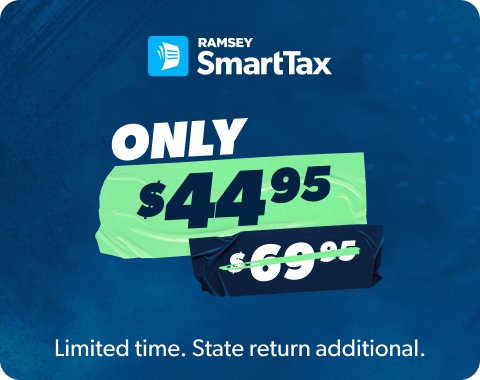What Is a 1099-K? Everything You Need to Know
8 Min Read | Nov 7, 2024

We absolutely love to see folks crushing their side hustles and making extra cash to reach their goals. Whether you want to pay off debt faster or save for your kids’ college funds, chances are, you’ve already got plans for what to do with all that extra income.
That’s all fine and dandy! But remember: You also need to set some of that money aside for taxes—and the IRS is about to make sure it collects the money it’s owed from freelancers, contractors and other workers who are part of the ever-growing “gig economy.” This is where the 1099-K form comes into play.
What Is an IRS Form 1099-K?
As a quick refresher: There are many different variations of the 1099 form, but the 1099-K is a tax form that shows all the payments you received through a credit or debit card or some other electronic payment system (these are also known as third-party payment settlement entities or PSEs . . . yeah, that’s a mouthful).
Some of these systems include well-known third-party payment platforms like PayPal, Stripe, Venmo, Cash App and others that are popular with freelancers and gig workers. These platforms will send you and the IRS a 1099-K form so everyone is on the same page about how much business income you should report.
What Is a 1099-K Used For?
The 1099-K is a form that helps you calculate how much small-business or side-gig income you’ve earned so you can report it to the IRS. If you’re killing it with your side hustle or weekend gig, using third-party platforms like Venmo or PayPal can be a quick and convenient way to accept payments from your customers. Think of the 1099-K form as a tool that will help you accurately report your business income from PSEs and debit and credit card payments.
How Is a 1099-K Different From a 1099-NEC or 1099-MISC?
Both the 1099-K and 1099-NEC report payments made to you as a gig worker or small-business owner.
The 1099-K reports payments from:
- Debit cards
- Credit cards
- PSEs (third-party payment platforms like Venmo or PayPal)
The 1099-NEC form records payments from:
- Cash
- Checks
- Direct deposits
- ACH (automated clearing house)
- EFT (electronic funds transfer)
These two forms do the same thing—they report how much money you’ve made from your gigs or independent contractor work. You might receive one or the other (or both). It all depends on how you were paid for your work.
You’ll get a 1099-MISC form if someone paid you $600 or more for things like prizes, awards, or rent.
Who Qualifies for a 1099-K?
For tax season 2023, you will receive a 1099-K tax form if you sell $20,000 or more in goods or services, with a minimum of 200 debit, credit or PSE platform transactions.1 These are the same 1099-K thresholds as the 2021 season. No changes to worry about!
But starting in 2023, all that will change. Anyone who receives only $600 from selling goods or services from third-party payment platforms (like PayPal and Venmo) or online services (like Uber or eBay) will receive a 1099-K—and there’s no more transactions minimum! These will be massive changes for your side hustle taxes.
Looking ahead (because everyone knows time flies), let’s say you meet the $600 threshold for sales made using a third-party payment network in 2023. Then you would keep an eye open for a 1099-K in the mail starting in January 2024. Remember, even if you only received a single $715 payment via Venmo for your pressure-washing side hustle in 2023, you can expect to receive a 1099-K.
What Caused the 1099-K Changes for Tax Season 2024?
According to a recent study, there are potentially thousands of gig economy workers misreporting or underreporting their incomes because they don’t receive a 1099-K form, leading to billions of dollars in lost tax revenue.2 (Side note: Even if you don’t receive a 1099-K, you are still required to report your business-related income when you file your tax returns.)
Got small business tax questions? RamseyTrusted tax pros are an extension of your business.
In fact, the difference between what taxpayers owe and what they actually pay (which is commonly known as the tax gap) is about $166 billion per year, according to the U.S. Treasury Department.3 Uncle Sam doesn’t like that one bit!
The American Rescue Plan Act, signed by President Joe Biden back in March 2021, attempts to solve that problem by significantly lowering the 1099-K threshold. (You may have heard that the IRS planned these changes to take effect tax season 2023, but they delayed it a year.) They hope that the change will lead to more accurate tax reporting and give the government a more accurate picture of just how much the gig economy has grown (especially in the wake of the COVID-19 pandemic).
Like it or not, this change means there will be a lot more folks receiving and filing 1099-K forms with the IRS for the 2022 tax year. For many freelance workers and third-party platforms, that also means more paperwork when tax season rolls around—so just get ready for that.
Will I Receive a 1099-K for Personal Transactions?
If you only use Venmo or PayPal for things like personal gifts, charitable contributions and reimbursements, you’re in the clear. Personal transactions are not taxable. The 1099-K changes we’ve been discussing will only apply to business accounts on each platform or transactions that are categorized as business transactions. Your friends paying you back for the pizza you ordered last night or your uncle sending you a bit of money for your birthday will not count as taxable income.
What if you were just selling a few items online and using one of these platforms to receive payment? Let’s say you sold a television online for $1,000 through eBay. As long as you have a receipt that proves that you paid more than $1,000 for that TV, then that money won’t count as taxable income either.
What if My 1099-K Is Incorrect?
Is it possible that you could receive a 1099-K form incorrectly reporting your personal transactions as business transactions or listing an incorrect amount of business income? Yes. If you believe there’s an error on your 1099-K, contact the debit or credit card company or PSE that sent you the 1099-K and request a corrected form. Keep copies and records of your forms and communication with the PSE.
What Should I Do if I Receive a 1099-K?
Remember, if you do receive a 1099-K, its job is to report transactions. Like we said above, it’s possible for the third-party payment network to make a mistake and report nonbusiness transactions to your small business or side hustle. Some transactions you receive via PayPal or Venmo, for instance, could be personal reimbursements or gifts from family members.
So it’s up to you to read through the 1099-K and figure out what is actually business income. That’s why you might want to think about getting expert tax advice from a tax professional.
Here are a few things you should do once you get your 1099-K from a third-party payment network:
1. Print out a transaction report.
Most platforms will let you print out all the transactions you made on their service during the calendar year. The first step is to download and print out a copy of those transactions so you can get a complete picture of your transactions throughout the year.
2. Separate your business transactions from your personal ones.
Next, you’ll need to go through each of those transactions and figure out which ones were business and which ones were personal. That way, you can figure out what is actually business revenue versus what was just a birthday gift sent by your uncle or BFF.
Pro Tip: Most third-party payment networks like Venmo and PayPal offer you the option to get a business profile so it’s easier to keep business and personal stuff separate!
3. Gather receipts and invoices.
The right documentation will help you prove what is business income and what isn’t. So make sure you keep organized records of receipts and invoices in case the Tax Man asks you to prove that a certain transaction was just between friends and not a business transaction.
4. Work with a tax professional.
Things can get tricky and overwhelming once you get a bunch of different tax forms involved. And one way to take the stress out of tax season is to work with a tax pro you can trust!
Our RamseyTrusted tax advisors will have your back every step of the way and make sure you can file with confidence. Find your tax pro today!
If you’re confident you can handle your own taxes and just want easy-to-use tax software (without the big sticker price), check out Ramsey SmartTax—we make filing your taxes easy and affordable.
Federal Classic Includes:
-
All major income types and federal forms
-
Prepare, print and e-file
-
Phone and email support
-
1 year of audit assistance
Federal Premium Includes:
Everything in Federal Classic plus:
- Live chat
- Priority phone and email help
- Free financial coaching session
- 3 years of audit assistance
- 1 month of ID theft protection




